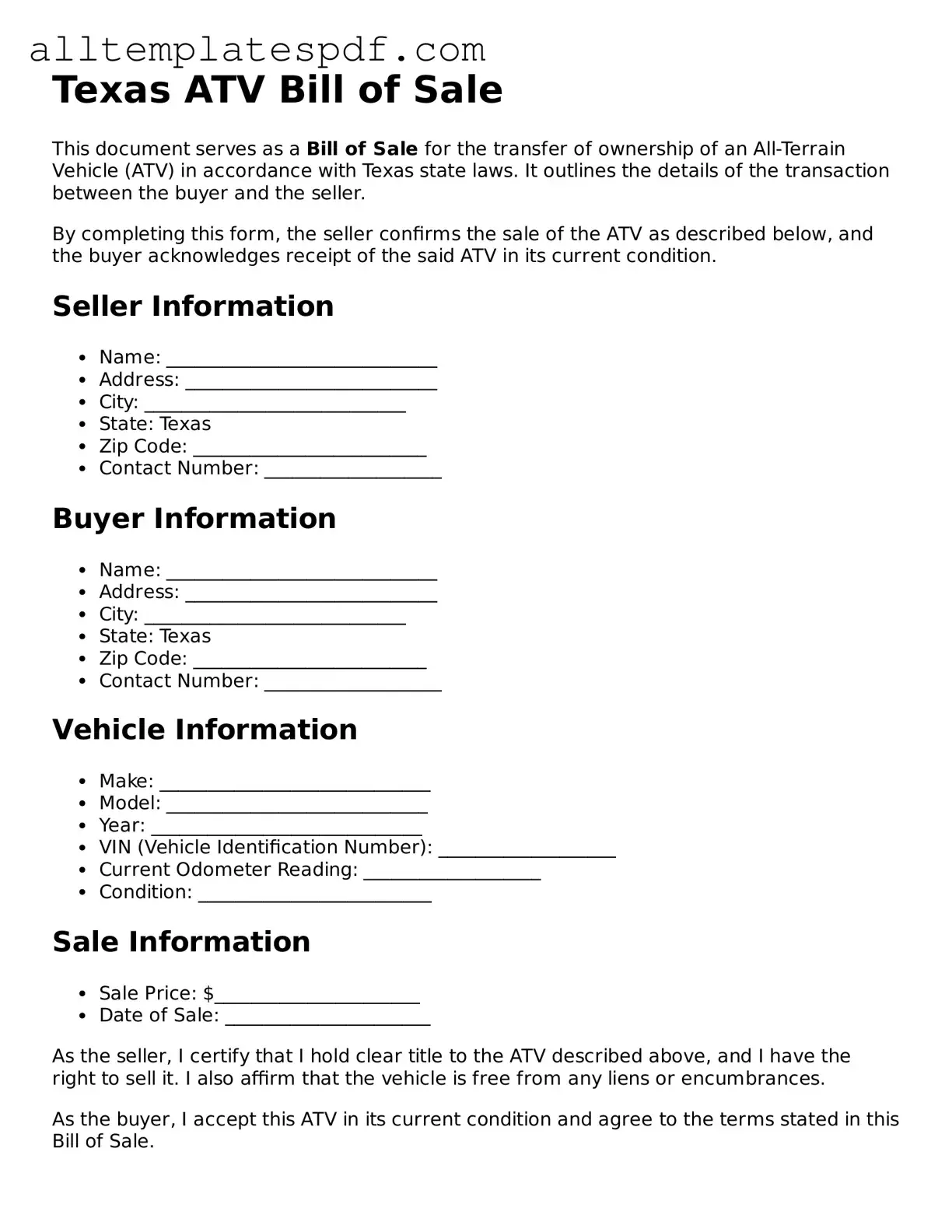When filling out the Texas ATV Bill of Sale form, many people inadvertently make mistakes that can lead to complications later on. One common error is failing to provide complete information about the ATV itself. It's essential to include the make, model, year, and Vehicle Identification Number (VIN). Missing any of these details can create confusion and may complicate the transfer of ownership.
Another frequent mistake is neglecting to include the sale price. This detail is crucial not only for the transaction but also for tax purposes. If the sale price is omitted, it can lead to issues when registering the vehicle with the state. Buyers and sellers alike should ensure this information is clearly stated.
Many individuals also overlook the importance of both parties' signatures. The form requires the signatures of both the seller and the buyer to validate the transaction. Without these signatures, the document may not hold up in case of disputes or legal issues. Always double-check that both parties have signed and dated the form.
Inaccurate dates can also pose a problem. It's important to write the correct date of the transaction. An incorrect date can lead to confusion about when the sale occurred, which may affect the registration process or tax obligations. Take a moment to confirm that the date is accurate before finalizing the form.
Some people forget to provide their contact information. Including a phone number or email address is helpful for future communication. If any questions arise after the sale, having contact information readily available can simplify the process for both parties.
Additionally, not keeping a copy of the completed Bill of Sale is a mistake that can have repercussions. After filling out the form, both the buyer and seller should retain a copy for their records. This document serves as proof of the transaction and can be useful if any issues arise later on.
Another error occurs when individuals fail to check for any liens on the ATV. Before completing the sale, it's important to ensure that the vehicle is free of any outstanding debts. If there are liens, the seller may not have the legal right to transfer ownership, which can lead to complications for the buyer.
Lastly, some individuals do not verify the identification of the other party. It’s a good practice to check the driver's license or other forms of ID to confirm that the person you are dealing with is who they claim to be. This step helps protect against fraud and ensures a smoother transaction.

